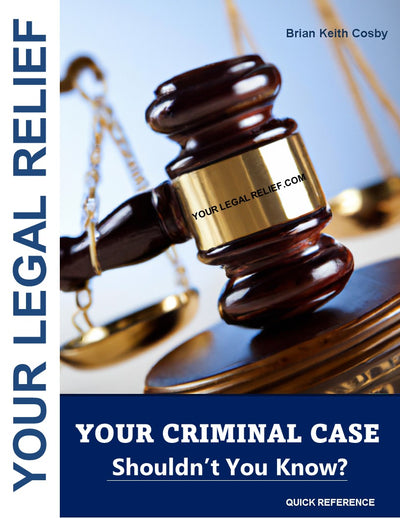Why
Understanding the Criminal Justice System: A Vital Resource for Individuals, Families, and Organizations
Why Knowledge of the Criminal Justice System is Crucial
Navigating the criminal justice system can be daunting for individuals and families, and it can be equally challenging for organizations that encounter legal issues. Understanding the criminal justice process is crucial for several reasons:
- Empowerment and Informed Decisions: Knowledge empowers individuals to make informed decisions. Understanding the criminal justice system helps individuals know their rights, recognize when they are being treated unfairly, and make strategic decisions about their legal representation and defense.
- Avoiding Pitfalls: Many defendants fall into common pitfalls due to a lack of understanding of the legal process. For instance, they might accept plea bargains without fully grasping the long-term consequences or fail to ask critical questions when hiring an attorney.
- Effective Legal Representation: Knowing what to ask and expect from an attorney can significantly impact the outcome of a case. Properly informed individuals can choose the right legal representation, ensuring their defense is robust and their rights are protected.
- Support and Guidance: Families and organizations play a supportive role when a member or employee is entangled in the criminal justice system. Being informed allows them to provide better support, navigate the process effectively, and seek the appropriate resources and assistance.
- Community and Organizational Impact: For organizations, especially those working in social services, education, or community advocacy, understanding the criminal justice system is essential to support their clients or members effectively. It enables them to provide accurate information, resources, and referrals to those in need.
Statistics on Plea Bargains and Convictions
A significant portion of criminal cases in the United States are resolved through plea bargains rather than trials. According to the U.S. Department of Justice, over 90% of federal criminal cases are settled through plea deals. While plea bargains can expedite the legal process, they often result from defendants not fully understanding their legal rights or the potential outcomes of their cases.
Moreover, studies have indicated that a lack of understanding of the criminal justice system contributes to wrongful convictions. The Innocence Project reports that false confessions, often influenced by a lack of understanding of the legal process, have played a role in approximately 29% of exonerations since 1989.
Key Areas of Knowledge:
- The Legal Process:
- Arrest: Understanding the rights during an arrest, including the right to remain silent and the right to an attorney.
- Charges and Bail: Knowing the process of being charged and how bail is set or contested.
- Pretrial Motions: Awareness of the motions that can be filed before a trial, such as motions to dismiss or suppress evidence.
- Trial: Understanding the trial process, including jury selection, opening statements, witness examination, and closing arguments.
- Sentencing and Appeals: Knowing the possible sentences and the process for appealing a conviction or sentence.
- Hiring an Attorney:
- Key questions to ask include the attorney’s experience with similar cases, their strategy for the defense, fee structures, and expected outcomes.
- The importance of transparency, communication, and trust in the attorney-client relationship.
- Organizations for Assistance:
- The Innocence Project: Provides legal assistance to those wrongfully convicted.
- Legal Aid Societies: Offer free or low-cost legal services to those who cannot afford private attorneys.
- National Association of Criminal Defense Lawyers (NACDL): Provides resources and support for defense attorneys and their clients.
- Glossary of Legal Terms: A glossary is essential for understanding legal terminology. Key terms include:
- Arraignment: The initial court hearing where charges are read.
- Discovery: The pretrial process where both parties exchange evidence.
- Indictment: A formal charge issued by a grand jury.
- Plea Bargain: An agreement where the defendant pleads guilty to a lesser charge.
- Probation: A court-ordered period of supervision instead of imprisonment.
Understanding the criminal justice system is not just for legal professionals; it is essential for individuals, families, and organizations. Being informed reduces the risk of unjust outcomes, ensures fair treatment, and empowers people to navigate the legal landscape effectively. By providing access to comprehensive legal materials, including a glossary of terms and guidance on the legal process, our website aims to be a vital resource for anyone seeking to understand and navigate the complexities of the criminal justice system.
